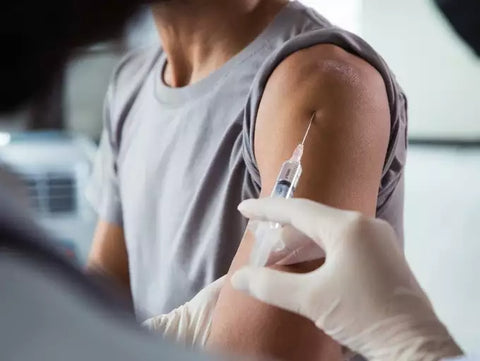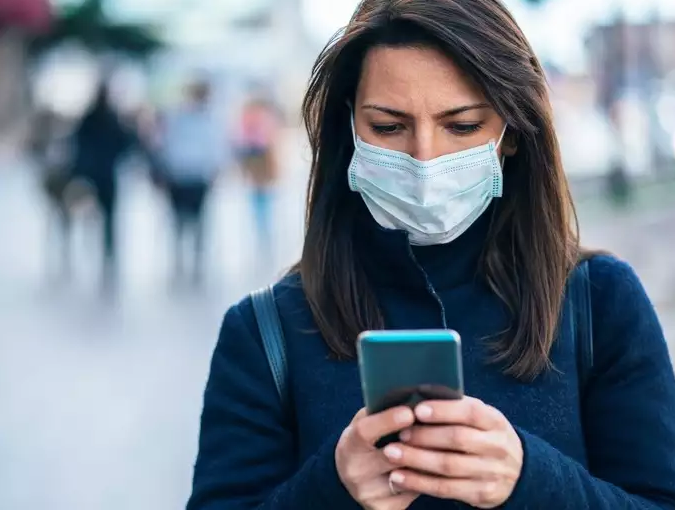1. Can you still test positive for COVID-19 after getting vaccinated?

The arrival of coronavirus vaccines has meant good news for so many people who have been wanting to resume a normal life.
And yet, there have been few reported cases of people who have been vaccinated, still testing positive for COVID-19.
Even though reports have been scattered, it feels like a cruel irony for those who have been pining hope on the working of vaccines to evade the virus, which has claimed many million lives and left many in risk.
2. How important is it to get the COVID vaccine?

Given that everyone - young or old - are susceptible to the deadly coronavirus, it is important that each and every person, falling under the eligibility criteria, gets themselves vaccinated. While the young may not feel the need to get vaccinated, it is crucial that we protect the most vulnerable in our community and that can only be achieved through mass-vaccination.
3. Can you transmit the virus even after vaccination?

However, experts aren’t alarmed. Neither does it mean your vaccine is ineffective.
Even if bleak, chances are that a person can easily transmit the virus even after getting vaccinated.
There are many reasons for the same. Here’s an explainer on the same.
4. Vaccines do not perform an instant job

Despite what reports may emerge, the viral transmission isn’t a clear indicator of the vaccine not working, or something is wrong in the way it was administered.
Vaccines do not work instantly. In fact, it should be yet another reminder of why people need to continue practising precautionary measures weeks after getting vaccinated.
While vaccines do work to generate a good immune response which acts against the pathogen, it can sometimes take upto weeks to respond. In the window where you wait for the vaccine to work, you are still vulnerable to the infection, in this case, COVID-19 and can much easily spread it, if you are not careful.
5. You need more than one shot for full protection

A single vaccine shot may be less effective than a double dose and this is the reason, people who have received their first dose have been asked to follow up in time for the second shot as well.
In the case of most vaccines being administered right now, two-dose regimes are required for them to be fully effective and evade the virus.
Lax precautions, or not taking safety measures would mean that there are chances for the virus to creep into your system, and you to transmit it onto others.
6. You may not get COVID-19, but you can still transmit the virus

Vaccine cut down illness and severity rates, not the transmission.
Another important factor to keep in mind while getting vaccinated is that most vaccines which have been rolled out for use right now work to prevent you from getting sick, i.e., stop the virus from inflicting problems on your body. While some of the vaccines can easily 'block' symptoms from showing up, they do not fully protect against the infection.
In the lack of this knowledge, a lot of people who have been vaccinated can still be carriers of the pathogen, spread it onto others who may not have been vaccinated. This, as a trend, has also been observed with other epidemics and infectious diseases in the past years.
Right now, while studies on the clinical level are still being evaluated, it has been seen that only a couple of vaccines have the power to act on transmission rates, such as the Oxford-Astrazeneca jab. The more we wait, we'll be in a better position to have research-backed, more efficient vaccines against COVID-19.
7. COVID-19 vaccines are subject to loopholes

The world may have received a vaccine, but do remember, they may not be the best ones yet.
We also still do not have enough scientific data to support the kind of immunity COVID-19 vaccines dole out. The reason? They are new and experimental, with some still under study.
Not only are most of them experimental, but fast-tracked. Most vaccines, including Pfizer's and Moderna's makes, carry over 90% efficacy rates, which can also wary as more data and observations are collated. This means that it can take upto years' before we get our hands on a 100% safe and effective vaccine or one which can completely thwart off infections.
Thus, this is nothing but a reminder that a vaccine alone won't help us defeat the pandemic. Even if it is a big step in curbing the spread of COVID-19, we must not be complacent in our approach, wear masks cautiously and follow all hygiene rules.
8. What happens if you get COVID-19 after being vaccinated?

You can still get reinfected with COVID-19, anytime.
Antibodies start to develop in the body after interacting with the infectious pathogen. But that isn't enough to protect an individual from getting sick again, as is the case with a lot of people who have strangely, caught the virus more than once.
This could also be a possibility to be prepared for with vaccines, even if rare.
Antibodies and systematic immunity could taper, or it could so happen, that the vaccine may not work so effectively for you, leaving room for the virus to cause problems. Remember, it can happen that you catch a less severe (or even asymptomatic version) of the virus.
Therefore, the biggest takeaway for all of us should be to keep in mind there is still an active germ threatening our health- masks and social distance are still the best ways to avoid getting sick.
9. The bottom line

The vaccine protects you from getting severely ill. But if you have already been infected, it may not prevent you from spreading the virus to others. As per some expert, it is better to act as if you are not vaccinated and continue to take necessary preventive measures to keep yourself and others around you safe.

